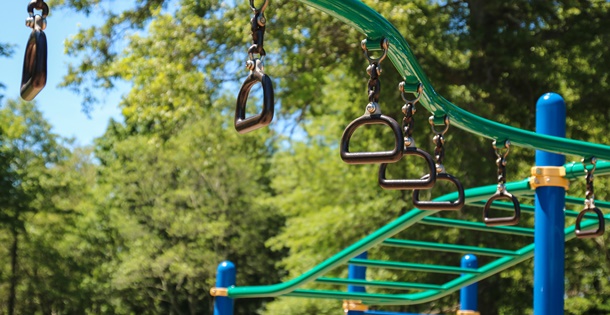Taking a daily break in the school day of at least 15 minutes may promote overall health, academic, and social development in elementary school children, according to a study published in the February issue of Pediatrics. Experts from the American Academy of Pediatrics advocate free, unstructured play for helping kids reach key developmental milestones. It also helps children manage stress and become more resilient. Sadly, playtime is getting squeezed out of the school day, a trend exacerbated by the 2001 No Child Left Behind Act. “Many schools responded to No Child Left Behind by reducing the time for recess, the creative arts, and physical education in an effort to focus on reading and mathematics,” says Romina M. Barros, M.D., the study’s principal investigator and assistant clinical professor of pediatrics at Albert Einstein College of Medicine of Yeshiva University. Children from disadvantaged backgrounds are especially affected. “We know that many disadvantaged children are not free to roam their neighborhoods, even their own yards, unless they are with an adult,” says Dr. Barros. “Recess may be the only opportunity for these kids to practice their social skills with other children. When we restructure our education system, we have to think about the important role of recess in childhood development.”
The second study, published in the January 2009 issue of the Journal of School Health, found that odds of passing standardized math and English tests improved as kids passed more fitness tests, even when controlling for gender, race/ethnicity, and socioeconomic status. “For families and schools, these results suggest investments of time and resources in physical activity and fitness training may not detract from academic achievement in core subjects and may even be beneficial,” the authors conclude.
Become a Saturday Evening Post member and enjoy unlimited access. Subscribe now



